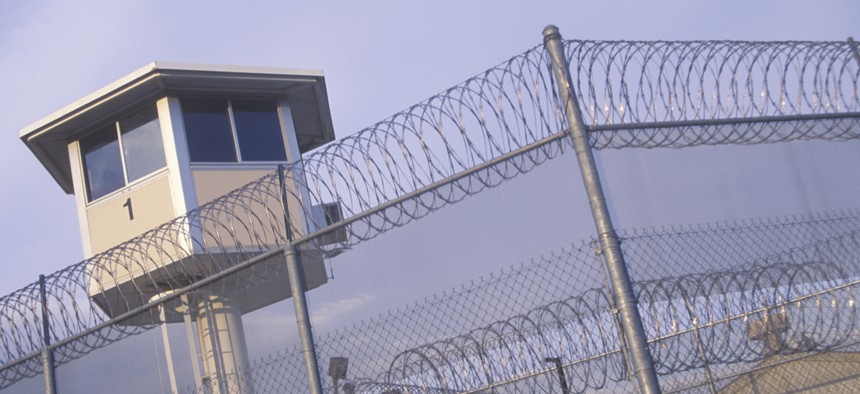California Will Require Prisons to House Transgender People By Gender Identity

California will allow transgender incarcerated people to be housed according to their gender identity. Shutterstock
A new law will require California correctional facilities to place transgender people in housing units that align with their gender identity, not their sex assigned at birth.
State correctional facilities in California will be allowed to house transgender people in units that align with their gender identity, a change from previous policies that usually made those assignments by incarcerated people’s sex assigned at birth, under a law signed by Gov. Gavin Newsom over the weekend.
The new law puts in place a number of new policies for transgender people in prison. During intake into a prison, each individual entering custody will be asked to disclose their gender identity and preferred pronouns “in a private setting.” Correctional staff are barred from disciplining a person for their responses to the question and will now be required to use the preferred gender pronouns of incarcerated people in all interactions and on written forms.
Transgender people would only be placed in men or women’s facilities that differs from their preference if there are significant “management and security concerns."
The change to the state’s transgender policies was included as part of a package of LGBTQ-focused legislation. Other measures included a law requiring local public health departments to track diseases that affect the LGBTQ community and another that bars insurance companies from denying disability coverage to people who test HIV positive.
Newsom heralded the new laws as “some of the strongest” protections for the LGBTQ community in the nation.“Our march toward equality takes an additional step forward,” said Newsom in a statement. “These new laws will help us … advance inclusive and culturally competent efforts that uphold the dignity of all Californians, regardless of who you are or who you love.”
The law’s author, California State Sen. Scott Wiener, called it “life-saving and deeply important.”
“Incarcerated transgender people deserve to be housed in facilities consistent with their gender identity,” he said in a statement. “When we house trans people based on their birth-assigned gender, we place them at high risk of sexual assault and violence.”
One study of California prisons suggested that transgender incarcerated people are 13 times more likely to be raped than the general population. National surveys conducted by the U.S. Justice Department found that 40% of transgender incarcerated people reported sexual abuse or assualt by other incarcerated people or prison staff. As a result, transgender people are often put in solitary confinement
Bamby Salcedo, president of the Translatina Coalition, a Los Angeles-based group that lobbied for the law’s passage, said that the changes will be a “life saver for many trans, gender nonconforming and intersex (TGI) people.” The law “will set precedence not only in our beautiful state but it will also provide the ability for other states to follow suit and validate the lives of TGI people,” Salcedo said in a statement.
California is not the first state to create such protections for transgender individuals. Connecticut and Massachusetts passed similar laws in 2018 and New York City made it a policy for their jails in the same year.
Even with these protections, some advocates say more can still be done for LGBTQ people in prison. Nora Huppert, a legal fellow at the LGBTQ civil rights organization Lambda Legal said that prisons “can never be a truly safe place for trans people, but this legislation is a crucial first step toward eliminating the conditions that often result in harassment of and violence towards trans people, especially trans women.”
Huppert said that legislation could more broadly “address the culture of transphobia and incarceration that sends [transgender people to prison] in the first instance.”
Emma Coleman is the assistant editor for Route Fifty.
NEXT STORY: Corralling the Facts on Herd Immunity






